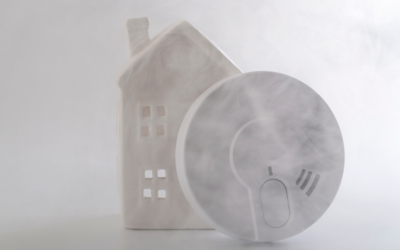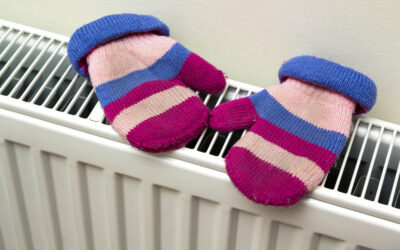As spring unfolds, it’s a perfect time to focus on the quality of air in our homes. While April brings refreshing changes in the weather, it’s also a transitional period that can affect indoor air quality. Understanding and managing the air inside our dwellings is crucial, as we often overlook that indoor air can be more polluted than outdoor air. Various common pollutants can accumulate inside, from pollen to pet dander, each posing potential health risks. This blog will explore how maintaining optimal indoor air quality is essential for health and well-being, especially during these transitional months.
Understanding Indoor Air Quality
Indoor Air Quality Defined: Indoor air quality (IAQ) refers to the air quality within and around buildings and structures, especially as it relates to the health and comfort of building occupants. Good IAQ is vital because poor air quality can affect occupants’ health, comfort, and productivity.
Common Indoor Pollutants:
- Pollen: Often infiltrates homes during spring, triggering allergies.
- Dust: Accumulates in all homes, composed of various particles, including human skin cells and outdoor dirt.
- Mold Spores: Can grow in damp areas, releasing spores that can be inhaled.
- Pet Dander: Tiny, microscopic flakes of skin shed by pets with fur or feathers, a common allergen.
- Volatile Organic Compounds (VOCs): Emitted as gases from certain solids or liquids, including paints and lacquers, paint strippers, cleaning supplies, and other building materials.
Weather Changes and IAQ: The transition into and out of winter can lead to fluctuations in humidity and temperature, which can exacerbate indoor air pollution. Increased humidity can promote mold growth, while increased use of heating systems can raise dust levels and introduce additional contaminants from outside.
The Role of HVAC Systems in Indoor Air Quality
Impact of HVAC on IAQ: HVAC systems play a pivotal role in maintaining indoor air quality. They circulate air within buildings, and their state of maintenance directly affects the air’s quality. Properly maintained systems efficiently manage air pollutants and maintain balanced humidity levels, enhancing the living environment.
Importance of HVAC Maintenance: Regular maintenance of your HVAC system is essential for good indoor air quality:
- Filter Changes: Regularly changing air filters is crucial as they trap dust, pollen, and other pollutants. Filters should ideally be changed every 90 days, or more frequently in homes with pets or high dust levels.
- System Checks: Routine checks by professionals ensure that the HVAC system is not contributing to indoor air pollution. This includes checking for leaks in the ductwork, ensuring vents are clean and unblocked, and verifying that the system efficiently manages humidity and temperature.
By understanding and taking action on these aspects, homeowners can significantly enhance their indoor air quality. Ensuring that your HVAC system is part of the solution, not the problem, is vital for a healthier home environment.
Enhancing Air Quality with Air Purifiers
Air purifiers are essential devices for anyone looking to improve the air quality within their homes or offices. They function by circulating air through filters and other cleaning elements to remove contaminants and pollutants like dust, pollen, smoke, and odors.
Types of Air Purifiers:
- HEPA Filters: High-Efficiency Particulate Air (HEPA) filters can trap 99.97% of particles that are 0.3 microns or larger, effectively removing most allergens, dust mites, and many types of bacteria.
- Activated Carbon: While HEPA filters capture particles, activated carbon filters are excellent at removing gases and odors from the air, making them ideal for homes needing to manage smells from cooking, pets, or smoking.
- UV Purifiers: Using ultraviolet light, these purifiers kill bacteria and viruses as air passes through the system. They are often used in medical settings but are increasingly popular in residential units for additional germicidal protection.
Choosing the Right Air Purifier: When selecting an air purifier, consider the size of the room where it will be used and the specific air quality issues you face. A larger room may require a purifier with a higher Clean Air Delivery Rate (CADR), while homes with pets or smokers might benefit from units with enhanced activated carbon filters.
The Benefits of Humidifiers and Dehumidifiers
The balance of humidity in your home can significantly affect both indoor air quality and comfort.
Humidifiers: These devices add moisture to the air, which can be particularly beneficial in dry climates or during winter when heating systems can dry out the air. Proper humidity levels can help prevent the irritation of skin, eyes, nose, and throat, and can also reduce static electricity and keep wooden furniture and instruments from cracking.
Dehumidifiers: Conversely, in areas with high humidity, dehumidifiers play a critical role by removing excess moisture from the air. This helps to prevent the growth of mold and mildew and reduces the prevalence of dust mites and other allergens.
Practical Tips for Improving Indoor Air Quality
Here are some straightforward, actionable tips that homeowners can implement to further enhance the air quality in their homes:
- Regular Cleaning and Vacuuming: Frequent cleaning helps reduce the accumulation of dust, pet dander, and other allergens on surfaces and in the air.
- Using Cooking Vents: Always turn on vents or open windows when cooking to minimize odors and smoke.
- Indoor Plants: Certain plants like spider plants, peace lilies, and Boston ferns can naturally help purify the air.
- Proper Ventilation: Ensure that your home is adequately ventilated, particularly in areas like bathrooms and kitchens, to reduce humidity and pollutants.
Conclusion
Maintaining good indoor air quality is crucial, especially as the seasons change and we spend more time indoors. By considering the use of HVAC systems, air purifiers, and humidifiers, homeowners can significantly improve the air they breathe every day. Absolute Heat and Air is here to help guide you through the options available to enhance your home’s air quality.
Don’t wait for the air quality in your home to deteriorate. Contact Absolute Heat and Air today to schedule a maintenance check and ensure your HVAC system and air quality devices are optimized for spring. Let us help you create a healthier, more comfortable home environment this season.




